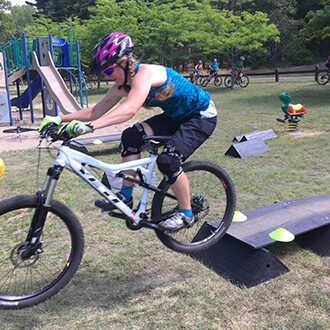Although you may dread the usual soreness that follows a workout, the inflammation you feel is actually a normal part of the process. It’s a natural phenomenon that helps muscles heal and get stronger, allowing athletes and people with active lifestyles to adapt to more complex, intense workouts over time. However, too much of anything is terrible, and experiencing excessive inflammation can quickly become a problem.
Learning how to reduce inflammation lies in understanding what causes it. Exercising too much without recovering, eating the right foods, or getting enough sleep can all lead to chronic inflammation, which can adversely affect your performance. It can also make you more vulnerable to illnesses, lessening the days you can attend practice or train for a competition. While some athletes use non-steroidal anti-inflammatory drugs (NSAIDs) like ibuprofen to treat this, extensive use can lead to gut damage and ultimately hamper performance.
How to Reduce Inflammation
Fortunately, there are a few things you can do to minimize inflammation. Here are five of them:
Get Plenty of Rest
Sleep is essential to everything, so prioritizing a good night’s sleep every night is necessary. At this time, your muscles are recovering, so suffering from poor sleep every night can cause even more inflammation. Sleeping at least 8 hours a night or taking even more naps can help you feel better, less tired, and alert, improving your focus and reaction times.
You’ll also want to prioritize your rest days and take them seriously. You shouldn’t spend every waking moment running through an intense training program, as your body needs enough time to recover and adapt.
Eat the Right Foods
Supplying yourself with the right fuel is crucial to achieving the performance goals you’ve set for yourself. Avoid refined carbohydrates, like white bread and white rice, as these can cause inflammation. Unfortunately, your favorite foods like French fries, soda, and fried foods fall under this category, so you’ll want to keep this to a minimum.
Be sure to add plenty of fruits and vegetables, as these are central to fighting inflammation. Turmeric, fish oil, and tart cherry juice are food products with natural anti-inflammatory properties, which can help speed up your recovery during intense training sessions.
Snack on Healthy Fats
Giving up refined carbohydrates doesn’t mean you can’t enjoy a snack or two. When you’re feeling ravenous but you’ve already eaten a hearty lunch, you can dine on a tiny feast of walnuts, peanuts, flax seeds, and almonds, which are replete with healthy fats. You can also drizzle more olive oil on your salads as a more nutritious dressing. Fatty fish like salmon and tuna are great protein alternatives that can help fight inflammation.
Limit Your Alcohol Intake
The occasional drink during a night out should be fine, but you’ll want to keep this to a minimum because alcohol is an incredibly inflammatory beverage that gets in the way of your sleep. It can also affect your performance in the long-term, so if you can avoid it altogether, it will ultimately be better for you.
Consume Enough Calories
Eating the right foods isn’t the only thing you need to do to take care of your nutrition; you’ll also have to consume enough calories every day. Your body needs enough energy to perform the strenuous activities you perform when you train or work out, so make sure you’re eating the right amounts of carbohydrates, healthy fats, and protein. Otherwise, you’ll risk increasing stress hormones, which can cause your inflammation to spike.
Conclusion
Inflammation is a normal part of training and working out, and feeling sore is a sign that your muscles were pushed to the limit and must adapt. However, too much inflammation can negatively impact your performance, so make sure to practice these five habits to keep everything under control.
Meg Parker is an intentional health and fitness coach skilled in many massages, including deep tissue, lymph drainage, reflexology, and many more. As a personal trainer, sports yoga instructor, and holistic fitness practitioner, she can help you reclaim your inner champion. Contact her today to get started on your fitness journey!









